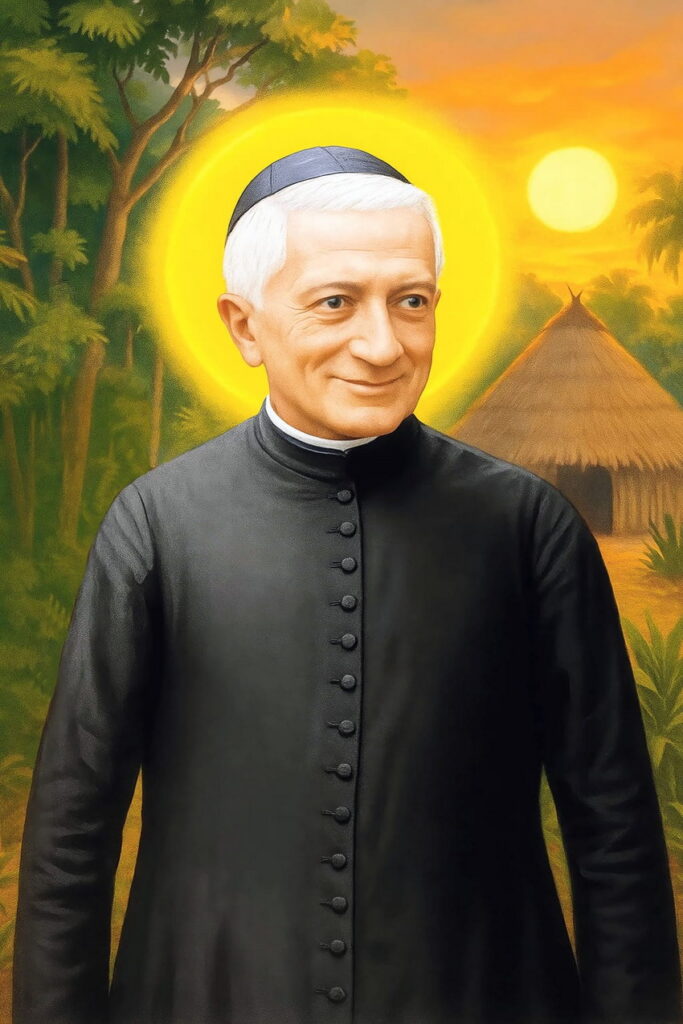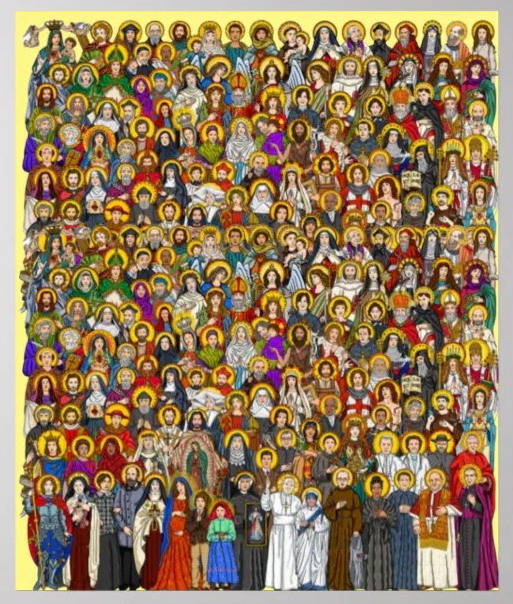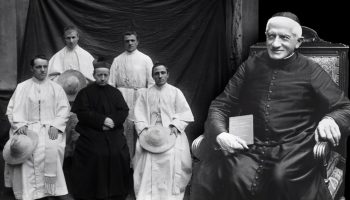
Throughout the year the Church honours many saints in the days of their birth to eternal life. In truth, there are few such feasts in relation to the many millions of Angels and Saints who are in Heaven.
By Jonah Makau *
Therefore, before the end of the year, it established a solemnity in which all were honoured: not only the saints known, that is, canonized or beatified and included in the martyrology, but also the many whose names and virtues we do not know. Among them are our fellow countrymen, relatives, confreres, in short, all those who either directly, or after passing through Purgatory, have reached the blessed homeland. St. John in the Apocalypse speaks of an immense crowd, which no one can enumerate.

We should keep our eyes and hearts fixed on Heaven, to rejoice with the Saints. The thought of Paradise must be the dominant thought of these days. I am convinced that in Heaven there are Saints who are holier than those we venerate on the altars. There is no need for the canonical process; Our Lord does it after death, in a moment. The Lord has prepared something for everyone. There is a special glory for the virgins, the martyrs, the apostles, etc.
We are also invited to be saints. We should however not deceive ourselves: if we do not become saints here, in the time of formation, we will never become saints. Remember that a perfect cleric generally becomes a good priest, and a mediocre cleric becomes mostly a bad priest. This is all the truer of the missionary, who is exposed to greater dangers.
To honour
In the Catholic Church, we believe that God has given us the saints for several reasons. First to honour them. According to St. Joseph Allamano, we must honour the saints because they are among the Princes of the Heavenly Court, who reign with Our Lord Jesus Christ forever. Therefore, reason and faith demand that we honour them. They are God’s friends, honoured by God and therefore to be honoured by us too. The Saints are our elder brothers and benefactors, and who is it that does not respect the older ones and those who do us good?
In our Institute, we have the salutary practice of proposing a Saint to ourselves every year, to honour him in a special way and imitate him. Honouring the saints is in a way honouring God, whose grace and power enabled them to live such holy lives. We can therefore say in honouring those who are the chosen friends of God we honour God Himself”.
The anniversary of the saint whose name we bear is also to be celebrated in a special way. The Church ordered parish priests to impose the name of a saint on those being baptized. St. John Chrysostom reproached those fathers who dared to impose profane names. We must also be particularly devoted to the Patron Saints of the Diocese, the Parish, the Institute, the places where we go; as well as those whose relics we possess.
To invoke

Second, the church gives us the saints so that we can invoke them. The Lord placed them as our intercessors at his throne. They can and will help us obtain the graces we need. Let us therefore have recourse to their intercession with trust, with love. On this earth too, those who are with the great obtain favours for those who have recourse to them. In particular, pray to the Virgins, the Martyrs, the Apostles, as your Protectors. The saints, though already possessed of full happiness, are solicitous of us, anxious to be able to help us attain them. Charity endures even in Paradise, as St. Paul says.
Usually, different saints are known for different gifts. When we find ourselves in need of a particular virtue, we should turn to the intercession of those saints distinguished themselves in it: St. Thomas, St. Alphonsus, St. Francis de Sales for science; St. Louis, St. John Berchmans, St. Stanislaus Kostka for purity; St. Francis Xavier, St. Peter Claver, St. Faithful of Sigmaringa, Blessed Chanel, for apostolic zeal. I also recommend to you a special devotion to the saints who are less remembered, as we do for the souls in Purgatory who are most abandoned.
To imitate
Third, the church gives us the saints so that we can imitate them. They are the models given to us by Our Lord; models that can be imitated by all, because they vary in their lives and in the heroism of their virtue. They too went through tribulations and temptations; they too had their faults; some of them, like St. Augustine and others, also committed sins, but by the grace of God they were shaken and sanctified. Let us say to ourselves with St. Augustine: Si isti et illi, cur non ego? If these and those in my own conditions of life were able to sanctify themselves, why can’t I? This is the fruit that we must draw from today’s solemnity: imitating the saints.
As we approach the centenary of the death of our Founder, St. Joseph Allamano, let us ask the almighty God to continue sustaining our missionary commitments through the intercession of all the saints.
* Fr. Jonah Makau, IMC, Postulation and History Office, Roma.



